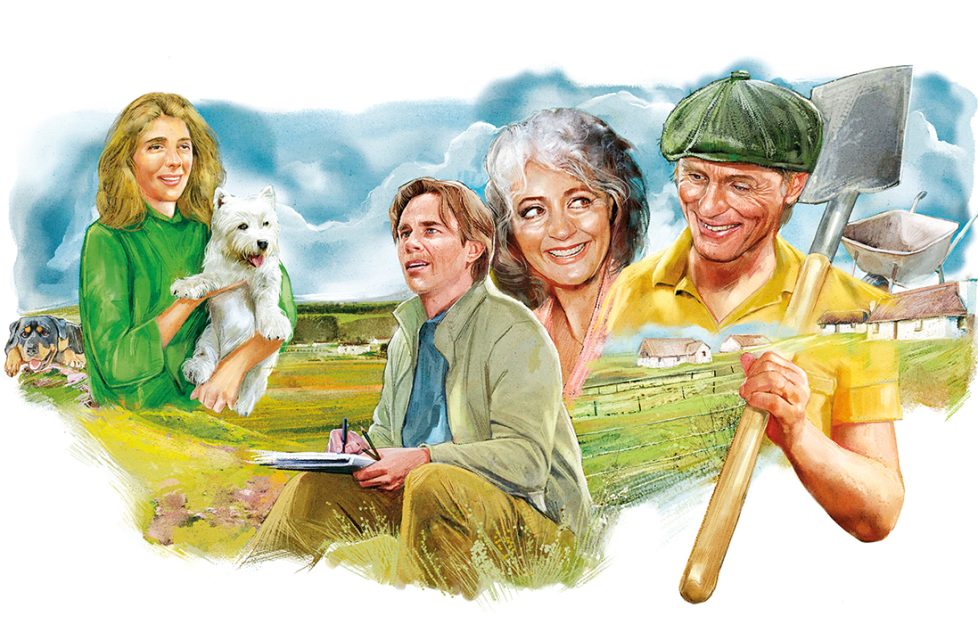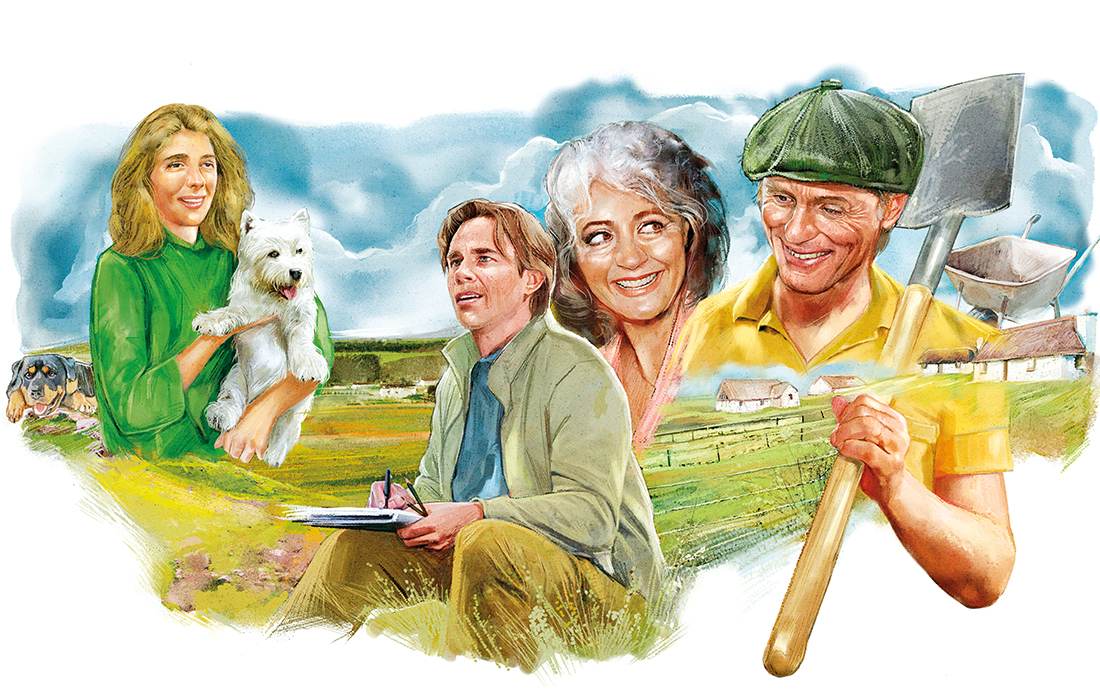There’s Always Tomorrow – Episode 06

There's Always Tomorrow by Mark Neilson
« Previous Post- 3. There’s Always Tomorrow – Episode 03
- 4. There’s Always Tomorrow – Episode 04
- 5. There’s Always Tomorrow – Episode 05
- 6. There’s Always Tomorrow – Episode 06
- 7. There’s Always Tomorrow – Episode 07
- 8. There’s Always Tomorrow – Episode 08
- 9. There’s Always Tomorrow – Episode 09
Helen reached the front door of the other cottage, twisted the handle and put her shoulder against it.
She almost fell inside. The cottage was a mirror image of her own, so she rushed upstairs and turned into the main bedroom.
As she reached its door, there came another cry of anguish.
She fumbled at the wall for the light switch.
As her eyes adjusted, she saw the prosthetic leg parked at the side of the bed, and Larry himself, thrashing around in a tangle of bedclothes.
Running across, she reached down to firmly hold a flailing arm. It bucked against her, fighting back.
“Larry!” she spoke clearly and firmly. “It’s Helen. Whatever’s scaring you, it’s not real. It’s a dream.”
The flailing stopped. His eyes stared wildly through her, beyond her into another place, but at least he had stopped fighting.
“It’s Helen,” she repeated. “You’ve had a nightmare.”
His breath came in harsh, raw gasps. But his eyes blinked, slowly refocusing.
“Helen? Sorry. It’s happened again, hasn’t it?”
“The nightmare? Yes. But it’s over now. Will I make you a cup of tea?”
He smiled wryly.
“It cured most things in the Army,” he said.
Helen turned to go down to the kitchen.
Only then did she see Tanya standing behind her in the bedroom. The big softie who was everyone’s minder.
The dog padded forward to stand at his bedside.
Larry’s hand came out to ruffle the dog’s ears, and the stump which was left of her tail twitched.
Larry was in safe hands.
Helen went down into the kitchen to make tea. Everything was spotlessly clean and organised with military precision.
She came back upstairs, with a mug in each hand, to find Larry on the edge of his bed, the prosthetic limb strapped on again under his pyjamas.
He looked up, one hand still on Tanya.
“Sorry,” he said. “It must have been scary. The leg; the screams.”
“Not at all,” she assured him, handing over his mug. “I’ve seen all kinds of prosthetics, and it’s not the first time I’ve had to deal with post-traumatic stress.”
He grimaced.
“There’s a lot of us about,” he acknowledged. “And a lot more who didn’t make it.”
He sipped his tea.
“That’s twice you’ve said you were a nurse. Past tense. What happened?”
“Too long a story,” she murmured.
“We’ve ten minutes of tea left,” he joked weakly. “You know my problem, so it’s your turn. What drove you out of nursing?”
“It’s complicated,” Helen replied. “And private.”
His eyebrows arched over the brim of the mug, then his eyes smiled. That gentle smile turned a key inside.
“I got tired,” she said abruptly.
His eyes never wavered.
“Tired of nursing.” She sighed. “Tired of being alive.”
“So you took up nursing stray dogs and cats instead. Why?”
“Is this the Spanish Inquisition?” she asked.
“No. It’s the Auchencairn one. We’re even worse.”
Helen sank slowly on to the foot of his bed.
“I was responsible for three wards,” she began.
“We were short staffed, struggling to fill gaps and to handle patients and give them the right care.
“Then I would rush home, nursing my mum who was ill. I never got enough sleep because my mind wouldn’t stop.
“Then one morning I just couldn’t do it. Couldn’t get out of my bed.”
“We called it battle fatigue,” he murmured.
“Weakness,” Helen said sharply.
“That’s what the generals said in the First World War. They were wrong. So what happened?”
Helen finished her tea.
“They brought in a nursing sister who didn’t know the patients or the staff and left her to pick up the pieces.
“She put a young nurse on the medicine trolley. The girl made a mistake and a patient nearly died.
“The nurse left, and she had the makings of a good one.
“I went to see her when I was fit enough to go back to work.
“It made no difference; she couldn’t live with her mistake. Nor could I. So I quit.
“When Mum died, I hid away and collected unwanted animals,” she added. “They’re easier to live with and more forgiving than humans.”
Larry nodded slowly.
“I know how you feel. I was leading two young squaddies out from under fire. We were running fast. I lost a leg. If only they had been so lucky.”
He grimaced.
“We’ve both got PTSD,” he reasoned. “So we hide away and beat ourselves up.
“So, what are we going to do about it?” he concluded.
“I don’t know,” Helen replied.
Standing up, Larry held out his hand for her empty mug.
“Trust me,” he said. “I’ve had lots of practice. When there is no easy answer, take it step by step.”
“So what’s the first step?” Helen asked.
“Try to do better tomorrow.”
His grey eyes crinkled.
“There’s always tomorrow. It brings another chance. That’s what has kept me going.”














